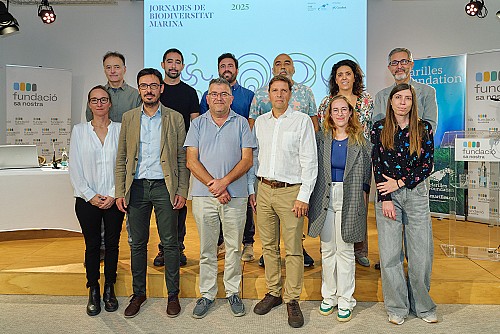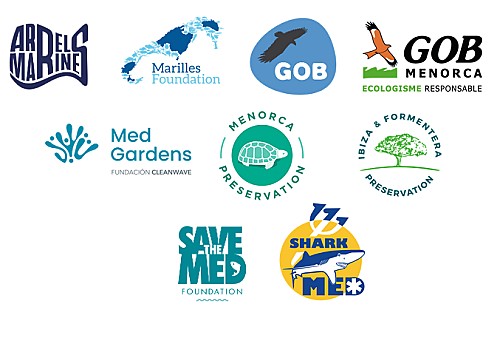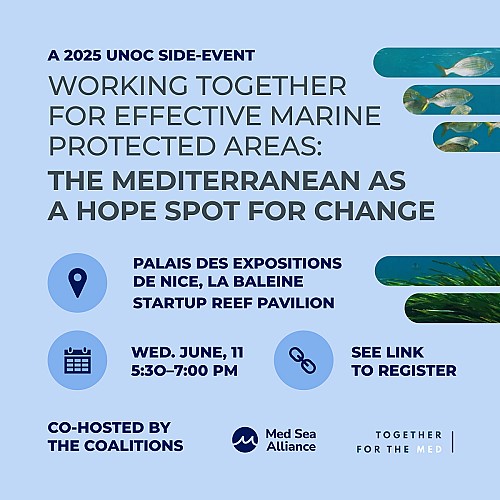We call on the Balearic government to extend the strictly protected area in the Freus marine reserve off Ibiza and Formentera.
Published 16.07.2025
Share

Caption: Photo by Moritz Simmeth, taken in the Freus marine reserve and licensed to MARE for conservation purposes.
The Balearic government has announced the expansion of the Freus marine reserve off Ibiza and Formentera. At Marilles, we consider this a positive decision. We encourage the Executive to move forward with its pending tasks and take advantage of this opportunity to expand the strictly protected area (i.e., no-take zone where fishing is prohibited) of this reserve. This measure, accompanied by good participatory management by all stakeholders, would help to restore fish stocks and biodiversity in this marine protected area (MPA) created in 1999.
The data released today by the Balearic government demonstrates the benefits of strict protection. This reserve’s no-take zone has between three and four times more fish than outside the reserve and many more than in the part of the reserve where fishing is allowed. It also shows that there is almost twice as much diversity in the strictly protected waters as outside the marine reserve. This demonstrates the need to expand the integral reserves, not only in this reserve but also throughout the Balearic Islands.
Aniol Esteban, director of Marilles Foundation: ‘The enlargement of the Freus marine reserve off Ibiza and Formentera is good news, but we cannot stop at quantity. We must also look at quality. Scientific evidence and studies carried out by the Balearic government show that strictly protected areas are the most productive, multiplying resources and diversity far above both the areas within the reserve where fishing takes place and areas outside the reserve with no limitations. Creating more no-take zones is the most effective tool for restoring life in the Balearic Sea and addressing the uncertainties of global warming that we are experiencing.’
Marilles in the media
- 08/06/2025 El Mundo: "Macron da comienzo a la cumbre de Niza para salvar los océanos y critica la ausencia de Trump: "Los océanos se han convertido en el salvaje oeste""
- 05/12/2024 RTVE: "Baleares como ejemplo de conservación del mar"
- 04/11/2024 Tarragona ràdio: "Pablo Rodríguez: "Estem molt lluny de protegir els oceans""




